This post may contain affiliate links. Please read my disclosure and privacy policy.
Which is the best juicer? I’m asked this question a lot, so today I thought I’d share the difference between a centrifugal and masticating juicer, which one is most affordable, and how to choose the juicer that is best for your personal needs. I use one to make my detox juice nearly every morning!
Which Juicer is Best to Buy?
If you’re new to juicing and want to juice fruits and vegetables quickly, I recommend starting with a centrifugal juicer like the Breville Juice Fountain Plus. This is the first juicer I ever bought myself, and I’m still using it nearly 10 years later!
As an Amazon affiliate, I earn on qualifying purchases.
Note: The Breville Juice Fountain Plus is slightly more expensive than the entry-level Breville juicer, but I’ve bought both of these models in the last 10 years and I much prefer the Juice Fountain Plus, if you can swing the slightly higher price tag. (It’s still cheaper than a masticating juicer.)
Centrifugal vs. Masticating Juicers
A centrifugal juicer, like the Breville I just mentioned, uses a flat spinning blade to quickly pulverize produce as you push it down through the chute. Then, it uses centrifugal force to push the pulp against the mesh basket, separating the juice from the pulp. The pulp goes one direction into the pulp bin, and the juice goes the other direction into your juice container.
Pros & Cons of a Centrifugal Juicer:
Pros:
- Afforable (you can get a good one from $99-150)
- Fast (takes less than 5 minutes to juice)
- Good at juicing most sturdy fruits and vegetables, like apples, cucumbers, celery, etc.
- Easy to clean (just need to scrub the screen)
- A large chute means you don’t have to cut down your produce to size before you get started
Cons:
- Not the best for juicing tender leafy greens, like wheat grass or spinach
- Juice will oxidize quickly, so it’s best to drink it right away, or within 24 hours
- Pulp is wetter, meaning you might not be getting the maximum amount of juice possible from your produce
- This method of juicing creates foam on top of the juice, which isn’t very palatable (though the pitcher is designed to help separate that as you pour it into your glass)
What is the Best Masticating Juicer?
A masticating juicer, like this Omega juicer, makes higher quality juice, and I think this is a great option for people who are already committed to a consistent juicing regimen.
A masticating juicer uses an auger to gently crush produce (instead of the blade in a centrifugal juicer), so the juice is slowly squeezed out of your produce, without heating it up. As a result, the juice from a masticating juicer is most likely higher in nutrients, and it can last up to 72 hours in the fridge.
Pros & Cons of a Masticating Juicer:
Pros:
- Makes high-quality juice, without much foam
- Since this process doesn’t heat up your produce, more nutrients are maintained in the juice
- The juice won’t oxidize as quickly, so it can last in your fridge for up to 72 hours (this means you can juice less often & clean up less often)
- Easy to clean (just need to scrub the screen)
Cons:
- Small chute. You have to cut your produce into skinny pieces before you even get started.
- More time-consuming. In addition to the prep work it takes to cut the produce, the overall time it takes to make your juice is longer, because of the gentle squeezing process. It takes me double the time to use my masticating juicer, when compared to my centrifugal one, and that doesn’t include cleanup.
- More expensive. These juicers can be up to 3x the price of a centrifugal juicer.
I bought my masticating juicer years ago, when I was very into juice fasting. For someone who might be trying to heal a certain condition, or who is interested in juice fasting, I think a masticating juicer is a great choice because the juice is higher-quality, probably contains more nutrients, and you can make it in advance, so you only have to use it once every 3 days.
Note: There is another type of juicer, called a twin-gear juicer, that uses a similar gentle process as the single-gear masticating juicer I just mentioned above. A twin-gear juicer is also an excellent choice for making high quality juice, but I don’t mention it much in this post because I’ve never bought one myself due to the price tag. (They start at $400 and go way up from there!) I try to only review products that I’ve bought myself, but I’ve read amazing things about the Green Star Juicer if your budget goes that high.
4-Minute Video: Juicer Comparison
If you’re more of a visual person, here’s a 4-minute video where I show you the difference between my two juicers:
How Do I Choose a Good Juicer?
Now that we’ve covered the pros and cons of both types of juicers, choosing a the best juicer depends on your needs.
- Planning to juice fast for several days in a row? In that case, you might prefer the masticating juicer, so you can juice only once or twice per week, and store a bunch of prepared juice in the fridge that is easy to grab.
- On a tight budget? A centrifugal juicer is the most affordable option around. (And it’s way cheaper to make your own juice at home than to buy it at a store!)
- Don’t have much time to spend on the juicing process? The centrifugal juicer is quick
- Need the most nutrition possible? Go with the masticating juicer, which won’t heat up your produce.
- Want to juice wheat grass? As masticating juicer handles grass and herbs better than a centrifugal juicer.
If you plan to make several servings of juice at once, I would plan on the process taking 45 to 60 minutes with a masticating juicer. I would make sure you are committed to the juicing process before you make the investment of time and money into this type of juicer.
I’ve got my daily practice down to 10 minutes with my centrifugal juicer, and that includes a quick clean-up, so I tend to use my Breville juice fountain most often. I love letting my kids help make the juice everyday! In my opinion, the best juicer is the one that YOU will use most often, so hopefully the pros and cons above will help guide your decision.
Benefits of Juicing
Why juice? It may sound counter-intuitive to remove the fiber from your fresh produce. Fiber is definitely something we want in our diets, but people who are juicing are typically getting more than their daily requirements during the rest of their day.
Freshly made vegetable juice floods your body with nutrients, without requiring the use of your digestive system (without fiber, there isn’t much that needs to be digested). It’s a great way to get more nutrients into your day, in an easy drinkable form.
While there still needs to be more research done on juicing, here are the established benefits I’ve been able to find so far:
- Juicing may increase the antioxidant levels in your body, as well as increases vitamin levels including vitamins C, E, and folate. (source) Antioxidants may help to protect your cells from damage caused by free radicals.
- Research shows that juicing may help to lower homocysteine (high levels of this are a risk factor for heart disease) and reduce markers of oxidative stress.
- Drinking juice 3 times a week may be helpful in reducing the risk of Alzheimer’s disease, according to one study that compared it to subjects drinking juice less than once per week.
I personally love how I feel when I drink juice first thing in the morning. It gives me more energy than a cup of coffee! (Though I still love the taste of my vegan latte, too.)
Juice Recipes
You don’t necessarily need a recipe to make vegetable juice at home, but it can be helpful to have a starting point! I’d recommend trying one of these recipes to get started:
If you want to make something with your leftover juice pulp, try my Juice Pulp “Meatballs” or Beet-Pulp Veggie Burgers.
I hope this overview of juicing and the comparison of the two juicers helps you decide which one might be right for you. Let me know in the comments below if you end up getting one, or if you have any other questions that I can help with!
–
Reader Feedback: If you’re already juicing at home, what kind of juicer do YOU have, and what’s your favorite juice combination?
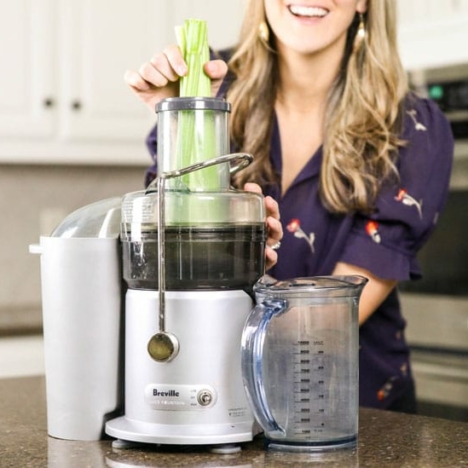

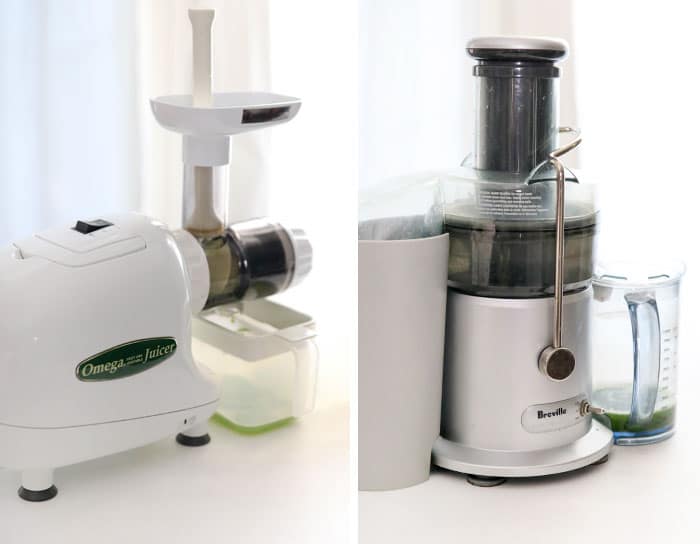
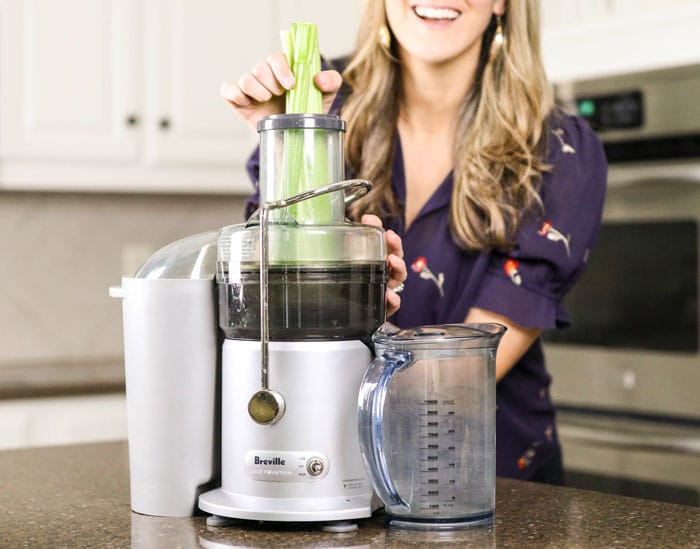
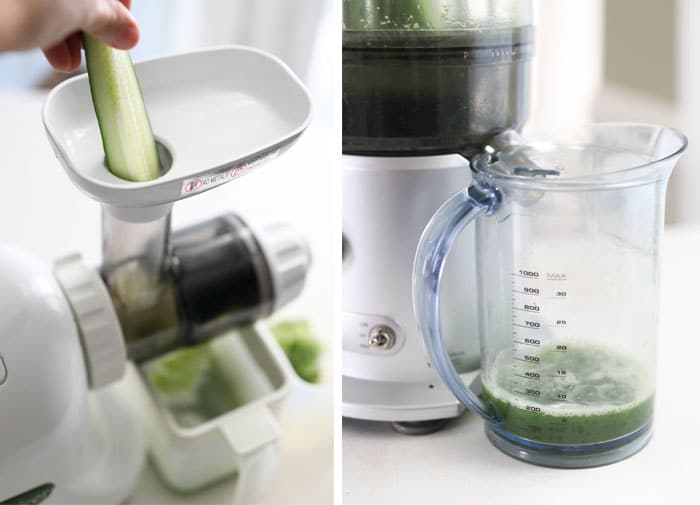
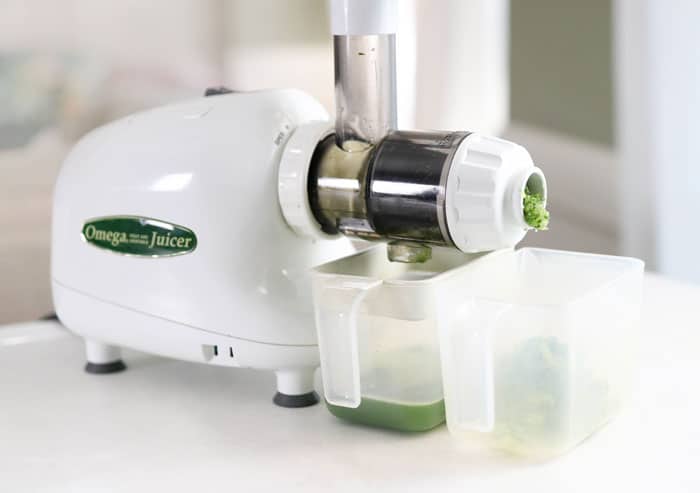
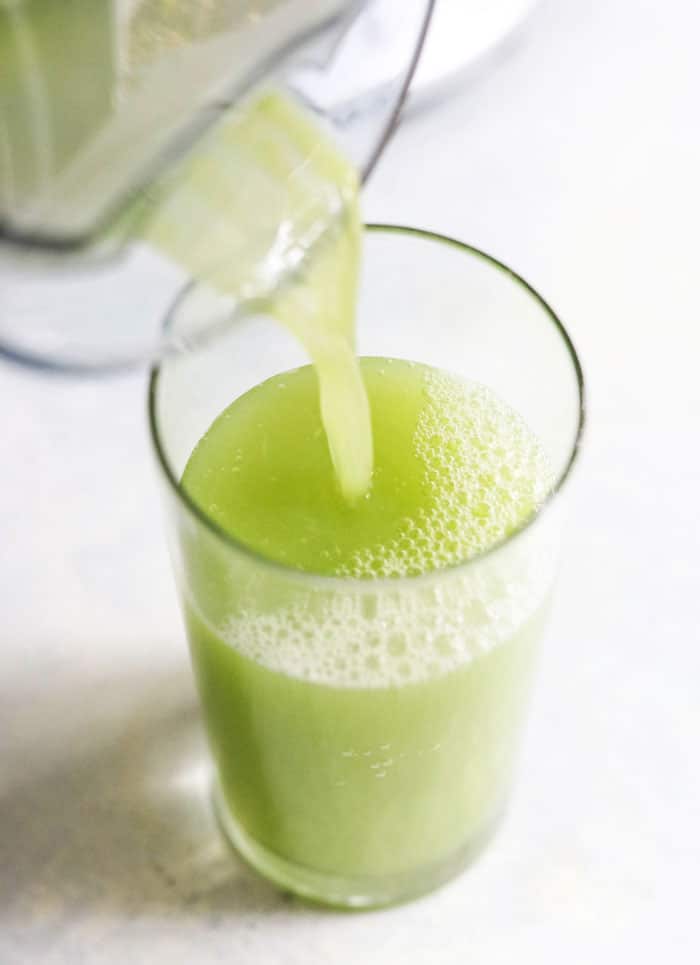


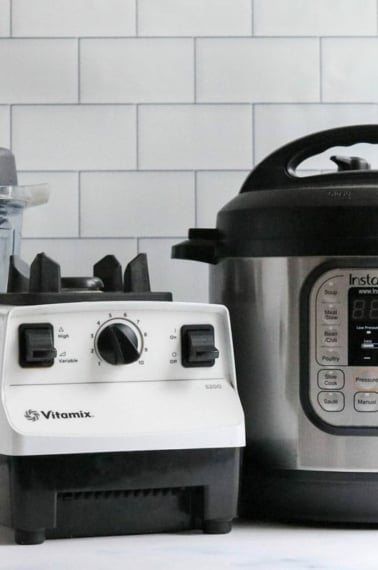








We have an Omega juice- it really works well. We do beets, celery, cucumber- stuff to keep my blood pressure down.